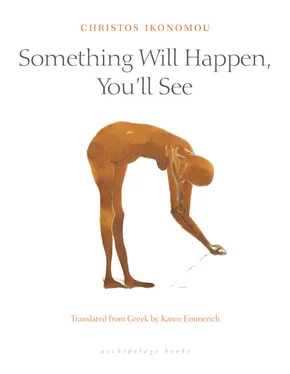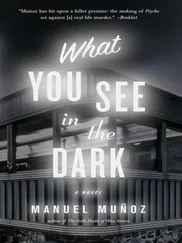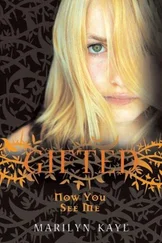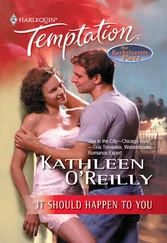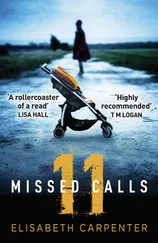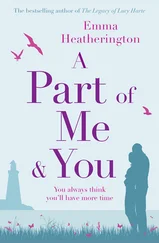I don’t know if all that was true or if Michalis just pulled it out of his head. But I can remember like it’s happening now, him carrying sacks to the truck murmuring in his sad sing-song voice:
En la cuna del hambre
mi niño estaba .
Con sangre de cebolla
se amamantaba .
Mike, man, what’s the guy trying to say, I asked the first time I heard it. What’s all that cuna and staba about?
Michalis put the sack down and grabbed a piece of ice and held it in the palm of his hand and squeezed it tightly and as the ice melted, he told me that the poet was talking about his son — his niño — who was lying in the crib of hunger and nursing on the blood of the onion. Sangre de theboya means the blood of the onion, Michalis told me and as he said it his eyes were shining and you’d have thought he was on the verge of tears, as if it were his son lying in that crib, his son nursing on that strange blood.
Sangre de theboya. The blood of the onion.
Thpaniards, I told him. You’re all crathy, every thingle one.
• • •
Lullaby of the Onion — that was Michalis’s favorite poem. But I liked a different one, which Hernández wrote for his friend Ramon who died very young and very suddenly, so suddenly the poem said it was like a flash of lightning. I didn’t know any Spanish or anything about poetry either. But I’d heard it so many times I’d learned a few lines by heart. I liked the part where Miguel said he wanted to dig up the earth with his teeth, to tear the whole earth apart so he could find his friend’s bones and kiss them.
Quiero escarbar la tierra con los dientes
quiero apartar la tierra parte a parte
I liked the last lines, too. When Miguel tells the dead Ramon that one day they’ll meet again and they’ll have so much to say to one another.
Que tenemos que hablar de muchas cosas
compañero del alma, compañero
I liked that poem even though it was long and I couldn’t remember most of the lines. I liked the sound of the words, their rhythm. I liked how Michalis said them. No pretense, just simply and sadly, the way you might read something you’d written a long time ago in some old notebook, a promise of undying love or friendship, some big statement you’d written about the future.
We have so many things to say
comrade of my soul comrade
• • •
It was January. Work was a bust. The boss had gone off again. He was a gambling addict like you’ve never seen, all the casinos from here to tomorrow knew his name. Parnitha Loutraki Thessaloniki you never knew where he’d be. He left a Palestinian in charge of the place while he was gone, Ziyad, who liked to play the tough guy. A shifty bastard who never smiled and had deep-sunk eyes and something threatening in the way he moved. He didn’t have much give or take with anyone, kept us all at arm’s length. Me in particular, there were plenty of times when I’d caught him looking at me like I was an Israeli soldier or something. Mark my words, I’d tell the others, things are going to get ugly with that guy. One day he’s going to walk in here with dynamite strapped to his chest and blow us all sky high. Michalis saw things differently. He said that when he looked at Ziyad he saw the desert in his eyes. What desert, Mike? They have a desert over there? Of course they do — a huge one. He was sure that Ziyad had lived for years in the desert, and that’s why he had that mysterious look in his eyes. Just look at him, he would say to me. Can’t you see the guy isn’t used to living among walls and machines? Don’t you see how his eyes are searching for a little space to stretch out in? What could I say. I didn’t see any desert in Ziyad’s eyes, or any camels either. But there was one thing I saw: every time Michalis grabbed a piece of ice and let it melt in his palm Ziyad’s eyes would flash with anger.
Michaliz! Don’t mez the ize, man!
And Michalis would stop in his tracks and raise a fist in the air and intone the finest line of poetry he knew:
Ize cream youz cream we all zcream for ize cream.
We all laughed, but Ziyad didn’t think it was funny. He would shake his finger and warn us.
If Kyrioz Giorgkoz come back you be the onez zcreaming.
And Michalis unfazed would answer again in poetry, lines by Michalis Ganas:
Poor Yiorgos
if only you could turn over
to see the other half of the world .
• • •
An unforgettable twentieth of January. We were loading up some orders for Piraeus. The day was so fine you could drink it from a glass. The Halcyon days. Of course now the whole year is one long Halcyon day, you can’t even tell the difference. We were running behind because the Scot had gotten blocked up again. That’s the name Michalis gave our biggest ice machine, not just because the brand was called Scotsman but also because when it got stuck it would only make half the ice it had been programmed to make. As stingy as a Scot, in other words.
I was struggling with the machine trying to get it going again. Ziyad had gone to put some money in the bank — he never trusted us with jobs like that. Michalis was stretched out in the shade reading a magazine he’d brought from home. He had a notebook open on his lap, too, and was scribbling something. I was about to start shouting when suddenly he let out a cry and leapt to his feet.
Come look at this.
I went over and he showed me the magazine. It was a special issue about the slogans written on walls from the time of the German occupation up to today. He pointed to a black and white photograph. On a wall was written: Michael Ramos 19 years old address 11 Nemesis Street I will be executed 8-9-44 . And beneath, in capital letters: LONG LIVE THE FATHERLAND .
Michael, I said. Same name.
Look at the caption. Read the caption, man.
I read it.
Last words of a young man sentenced to death written on the walls of the Gestapo’s basement cells on Merlin Street. A message with no recipient, written in the heat of the moment and therefore subjective, today it offers a cool, unprejudiced witness regarding the postmodern subjects of History .
Well, I said. Isn’t that nice. Happy things. Now come and help with the Scot because al-Fatah will be back soon and we’ll have him to deal with.
Michalis went over to the machine. I followed him. He bent down and took one of the few pieces of ice the Scot had spat out and held it in his hand. He squeezed it tightly until a trickle of water came out from between his fingers. Suddenly his face was bright red.
I don’t understand, he said. What does it mean, a slogan written in the heat of the moment? He was nineteen years old. They were going to kill him at any minute. I mean, how was he supposed to be writing? Without a care in the world? Cool as a cucumber? And all that shit about unprejudiced witnesses and the postmodern subjects of history. What kind of person could write a thing like that? How can they be so. Just so. It’s true, time is the worst healer. Time hardens people.
He hesitated for a minute and then said:
I want to swear. If you only knew how much I want to swear. But I can’t. I can’t even talk about it, you know? And since I can’t say what I’m feeling I’m afraid I’ll stop having those feelings. That they’ll be lost. It’s the silence that really scares me. It’s inhuman. How much silence can a person carry inside?
He looked at me as if he were expecting an answer.
He opened his fist. The ice had melted.
It’s your own heat of the moment now, I said. Come on, forget it. There’s no making sense of things like that.
I felt his eyes burning my cheek. But he didn’t say anything.
Читать дальше
